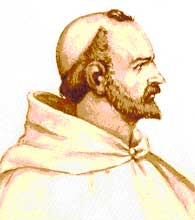Lucius III
|
Pope Lucius III |
|
|---|---|
 |
|
| Papacy began | 1 September 1181 |
| Papacy ended | 25 November 1185 |
| Predecessor | Alexander III |
| Successor | Urban III |
| Orders | |
| Consecration | 1159 |
| Created Cardinal | December 1138 by Innocent II |
| Personal details | |
| Birth name | Ubaldo Allucingoli |
| Born | c. 1100 Lucca, Holy Roman Empire |
| Died | 25 November 1185 Verona, Holy Roman Empire |
| Previous post |
|
Pope Lucius III (c. 1100 – 25 November 1185), born Ubaldo Allucingoli, reigned from 1 September 1181 to his death in 1185.
A native of the independent republic of Lucca, he was born c. 1100 (perhaps 1097) as Ubaldo, son of Orlando. He is commonly referred to as a member of the aristocratic family of Allucingoli, but this is not proven. He had close ties to the Cistercians, but it seems that he never joined the order. He was named cardinal by Pope Innocent II in December 1138, initially as cardinal-deacon of San Adriano, then (in May 1141) as cardinal-priest of Santa Prassede. Pope Adrian IV promoted him to the rank of Cardinal Bishop of Ostia and Velletri in December 1158. He was dean of the Sacred College of Cardinals and one of the most influential cardinals under his predecessor Pope Alexander III.
After being elected Pope in 1181, he lived at Rome from November 1181 to March 1182, but dissensions in the city compelled him to pass the remainder of his pontificate in exile, mainly at Velletri, Anagni and Verona.
He disputed with the Holy Roman Emperor Frederick I over the disposal of the territories of the late Countess Matilda of Tuscany. The controversy over the succession to the inheritance of the Countess had been left unsettled by an agreement of 1177, and the Emperor proposed in 1182 that the Curia should renounce its claim, receiving in exchange two-tenths of the imperial income from Italy, one-tenth for the Pope and the other tenth for the cardinals. Lucius consented neither to this proposition nor to another compromise suggested by Frederick I the next year, nor did a personal discussion between the two potentates at Verona in October 1184 lead to any definite result.
...
Wikipedia
